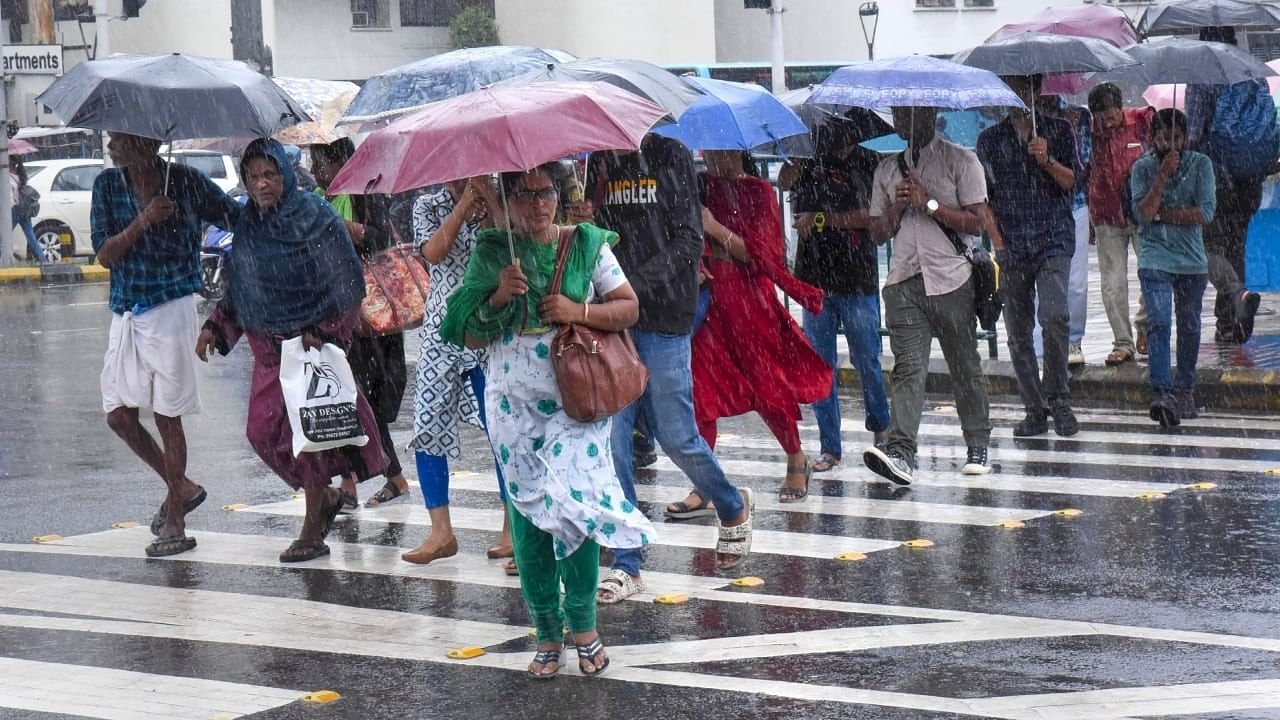
Representative image showing pedestrians walking on a road in rains.
Credit: PTI Photo
Chennai: In a welcome change from the scorching heat, several parts of Tamil Nadu, including Chennai, experienced heavy rains on Friday. Wide-spread downpour was reported across Tamil Nadu with temperatures reducing by a couple of degrees.
Due to such heavy rains, a 16-year-old teenager in Courtallam was swept away when he was taking a bath at one of the five waterfalls.
Myladi in Kanyakumari district received 7 cm of rainfall, while Tiruchendur, Valparai, and Nannilam received 6 cm each, Cuddalore and Coimbatore got 5 cm each and Chengalpattu got 1 cm each.
The Indian Meteorological Department (IMD) predicated heavy to very heavy rain for the next two days in Salem, Dharmapuri, Krishnagiri, Tiruppur, Virudhunagar, and Nilgiris.
As the Indian Meteorological Department (IMD) issued a Yellow Alert (very heavy rain) for the picturesque Nilgiris, the district administration asked tourists to avoid visiting the top summer vacation spot.
District collector M Aruna asked tourists to avoid visiting the place from May 18 to May 20 .
“We have put in place enough precautions. People have been asked to be careful during rains. As far as tourists are concerned, it is better for them to avoid visiting Nilgiris during heavy rains but if they still wish to, we have put in place enough measures to take care of them,” Aruna told reporters on Friday.
The advisory comes at a time when tourists have once again begun flocking to Ooty. For a while, they avoided the popular spot due to rise in temperature in the tourist town. Last week, Ooty recorded its highest-ever temperature. April saw Ooty touch 29 degree Celsius.
Less than four months ago, in January, the popular hill station nestled in Western Ghats, recorded near-zero temperature with nail-biting cold.
Extreme temperatures in winter and summer have led to serious concern with activists calling it an impact of climate change. They have demanded action from the government on protecting the hill station as it draws a million of tourists during peak season (April-June) due to its cool climate.